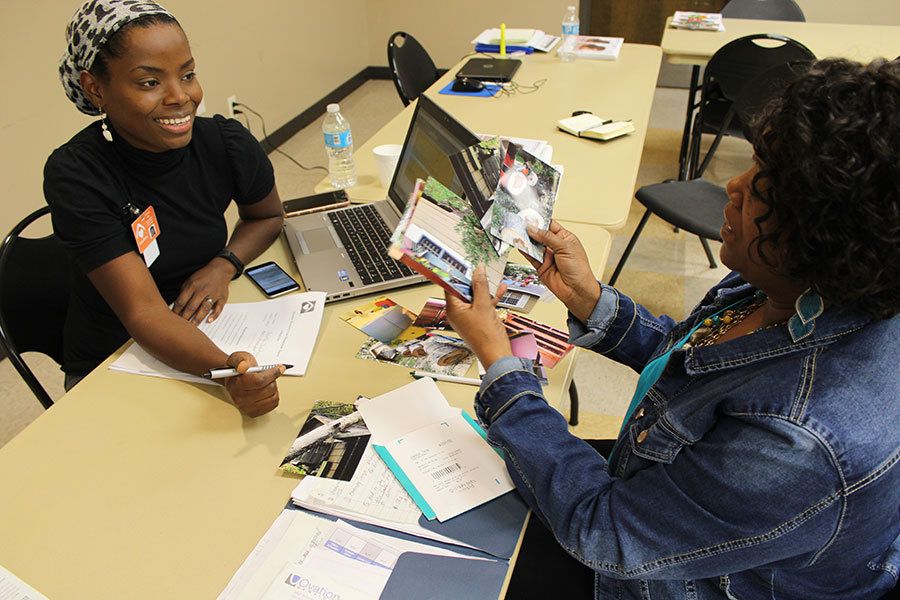By Will Frechette | GlobalGiving
It's now been 19 months since Hurricane Harvey struck the Texas Gulf Coast and caused historic levels of flooding in Houston and beyond, and we're proud to report that our nonprofit partners remain hard at work helping residents on the long road to a complete recovery. Here's a look at the work continuing to be funded by the 31,803 donors like you who've raised more than $5.2 million in support of community-led relief and recovery efforts.
Houston's S.H.A.P.E. Community Center has continued to fulfill requests for direct financial assistance from individuals and families affected by Hurricane Harvey. They worked with community partners to organize "Healing After Harvey Circle of Resiliency"—a community mental health awareness event to mark the one-year anniversary of the disaster.
Target Hunger will be opening a new food pantry in one of Houston's neighborhoods hardest-hit by flooding after Hurricane Harvey and has transitioned individuals and families who sought help during the storm to ongoing food assistance programs. They will be tracking their constituents' progress through 2019 to determine the long-term impact and outcomes related to disaster recovery for these community members.
The Coalition for the Homeless of Houston and Harris County, in coordination with local partner The Way Home, is working to remove barriers for hurricane-affected residents moving into permanent housing. They've established a fund that's provided more than 600 "welcome baskets" to their constituents full of home goods, furniture, and one-time financial assistance to pay for expenses like deposits that other funding sources may not cover.
As of January of this year, the team at BakerRipley are helping more than 1,700 households repair their flood-damaged homes. Additionally, they've provided direct financial assistance to more than 5,600 individuals and families and have supplied essential household goods to more than 22,000 families in the Houston area.
We're also happy to share that two leaders from our partners working on Harvey recovery efforts, Shondra Muhammad of S.H.A.P.E. Community Center and Tiffany Stafford of Target Hunger, were selected as members of the Disaster Recovery Network at GlobalGiving’s first class of Disaster Feedback Fellows. They joined eight other fellows from community-based nonprofits to spend a week in Washington, D.C. this past October learning from each other, promoting their disaster recovery projects to peers and funders, and speaking at and attending the 2018 Feedback Summit.
Thanks again for your generous support of the continuing work of helping communities recover and rebuild after Hurricane Harvey. We're looking forward to sharing more stories of progress with you in the coming months.
With gratitude,
Will + the GlobalGiving Team
Project reports on GlobalGiving are posted directly to globalgiving.org by Project Leaders as they are completed, generally every 3-4 months. To protect the integrity of these documents, GlobalGiving does not alter them; therefore you may find some language or formatting issues.
If you donate to this project or have donated to this project, you can receive an email when this project posts a report. You can also subscribe for reports without donating.
When a disaster strikes, recovery efforts led by people who live and work in affected communities are often overlooked and underfunded. GlobalGiving is changing this reality. Since 2004, we've been shifting decision-making power to crises-affected communities through trust-based grantmaking and support.
We make it easy, quick, and safe to support people on the ground who understand needs in their communities better than anyone else.
They were there long before the news cameras arrived, and they’ll be there long after the cameras leave. They know how to make their communities more resilient to future disasters, and they’re already hard at work. GlobalGiving puts donations and grants directly into their hands. Because the status quo—which gives the vast majority of funding to a few large organizations—doesn’t make sense.
Questions about this project? Contact us
